In many ways, Charleston is small, easily walkable, with only 350,000 people in the entire county, but the historic Southern city is by no means limited, especially when it comes to the dining scene. Per capita, it’s hard to imagine more or better options than what you’ll find in Charleston. Chefs like Mike Lata (FIG), Robert Stehling (Hominy Grill) and Ken Vedrinksi (Trattoria Lucca) could succeed anywhere in the U.S., and now, the city has a new star: Sean Brock. The James Beard Award-winning chef, who has overseen the stoves at McCrady’s since 2006, received plenty of attention when adding Husk to his repertoire in fall 2010, featuring “a celebration of Southern ingredients” in a revamped two-story Southern manor in Charleston’s historic core.
Husk was an immediate hit, so when we arrived for our reservation, the table wasn’t quite ready, which was a blessing. An adjacent two-story building, which hadn’t been occupied in 50 years, houses the bar. The stunning space features stone walls and an upstairs lounge with exposed wood beams and dried vines that crept through the wall, which the owners wisely kept for effect.
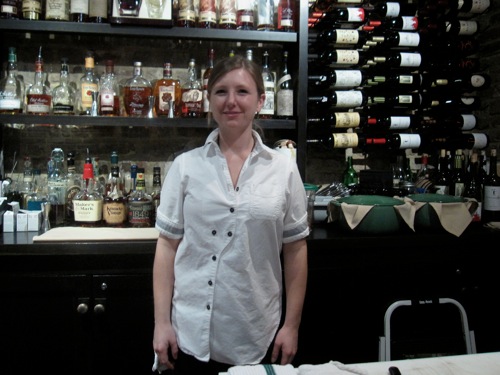
The cocktail menu, which bartender Megan Stanley said was a collaborative effort, features “Historic” drinks, aka “classic cocktails from original bartender guides,” and “Modern cocktails, aka “Husk’s creations for serious revelers.” Their commitment to local ingredients clearly extends to the cocktails, as demonstrated by The Walterboro, which is named for an interior South Carolina town and involves Smirnoff vodka, boiled peanut-pork jus and house-made peanut orgeat.
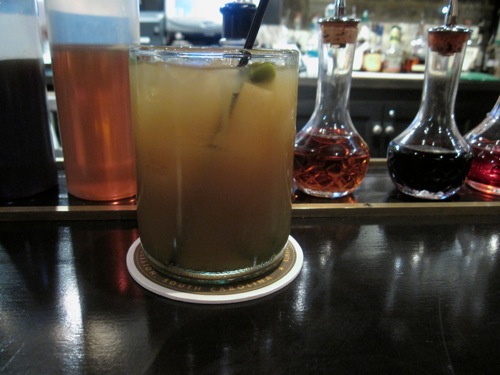
The Walterboro was certainly tempting, but my choice was Fire in the Orchard, “our seasonal riff on the Old Fashioned,” ($10) Basil Hayden bourbon, smoked apple juice, Cointreau, applejack brandy, bitters, Demerera sugar cube and pickled jalapeno garnish. The cocktail (and bartender) did a good job of balancing smoky, spicy and sweet elements.
Husk offers a selection of Southern beers, none more than $8, including Terrapin Hopsecutioner from Athens, an IPA brewed with Warrior, Chinook, Centennial, Simcoe, Amarillo and Cascade hops; Loggerhead Lager from right in Charleston, named for an indigenous turtle; and Highland Black Mocha Stout, brewed in what might be the South’s beer capital, Asheville, North Carolina.
Husk’s bar even shelves a pair of Wasmund’s barrels, which were being used to age Negronis and Manhattans, both “Small Batch Antique” drinks “made with liquor, love, time and tradition.” The menu promises that “the rough edges get lost in the staves” with the Barrel-Age Negroni, which combines Gordon’s Gin, Campari and Carpano Antico sweet vermouth. The Barrel-Age Manhattan uses Old Overholt Rye Whiskey, house-made citrus vermouth, anise and clove, barrel aged for 30 days. The Barrel-Age cocktails each cost a reasonable $16, and if we had a longer wait, a Negroni could have easily made its way toward me, but we got called up to the big leagues, the dining room.

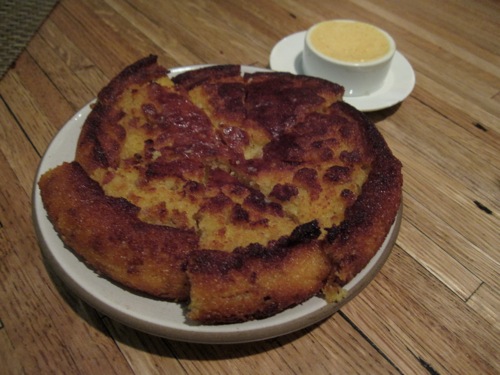
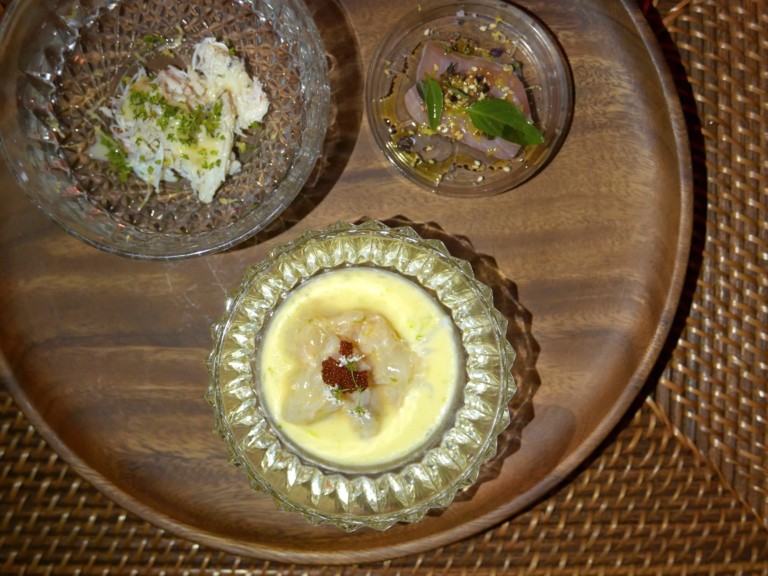
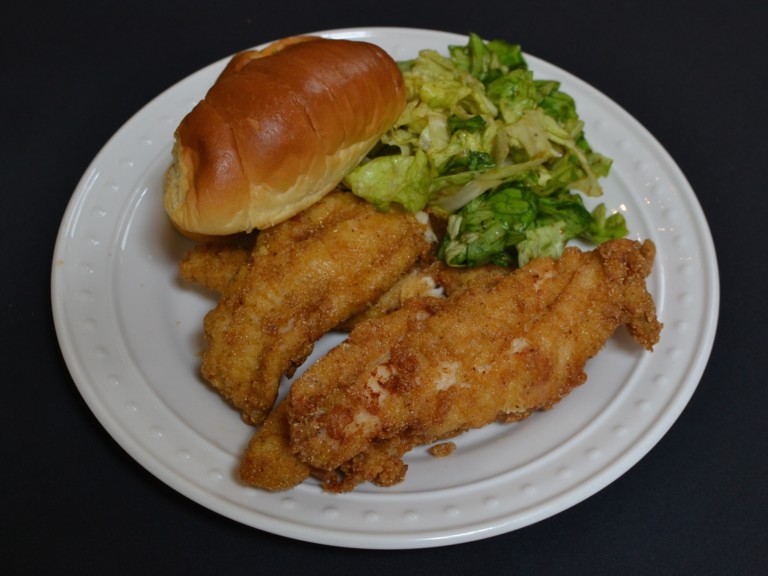
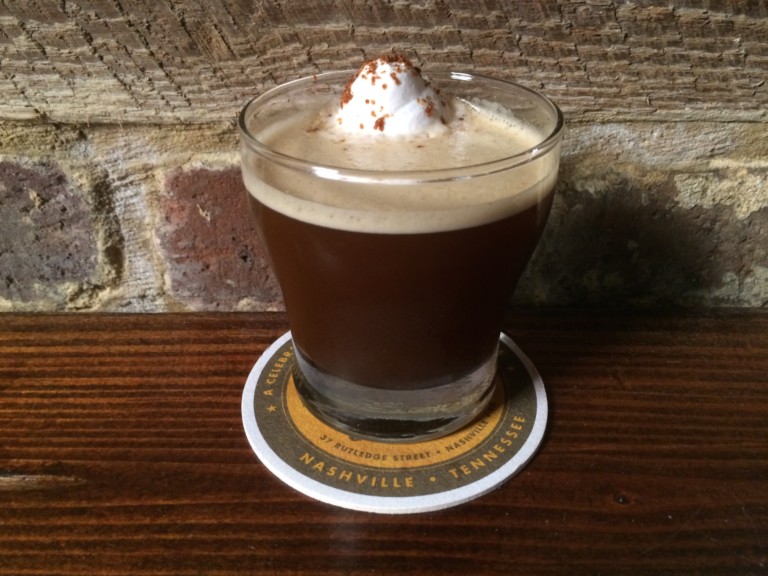




Blog Comments
Stan
May 12, 2011 at 12:32 AM
Great, you just reminded my stomach how hungry it is.
Joshua Lurie
May 12, 2011 at 10:46 AM
Stan, that’s kind of the idea. If you’re ever in Charleston, Husk should be on your short list, along with the other restaurants from my intro.